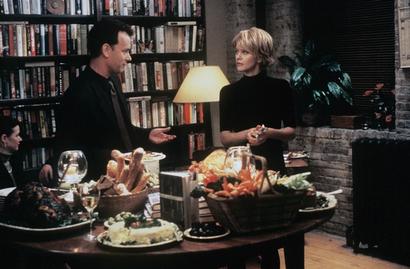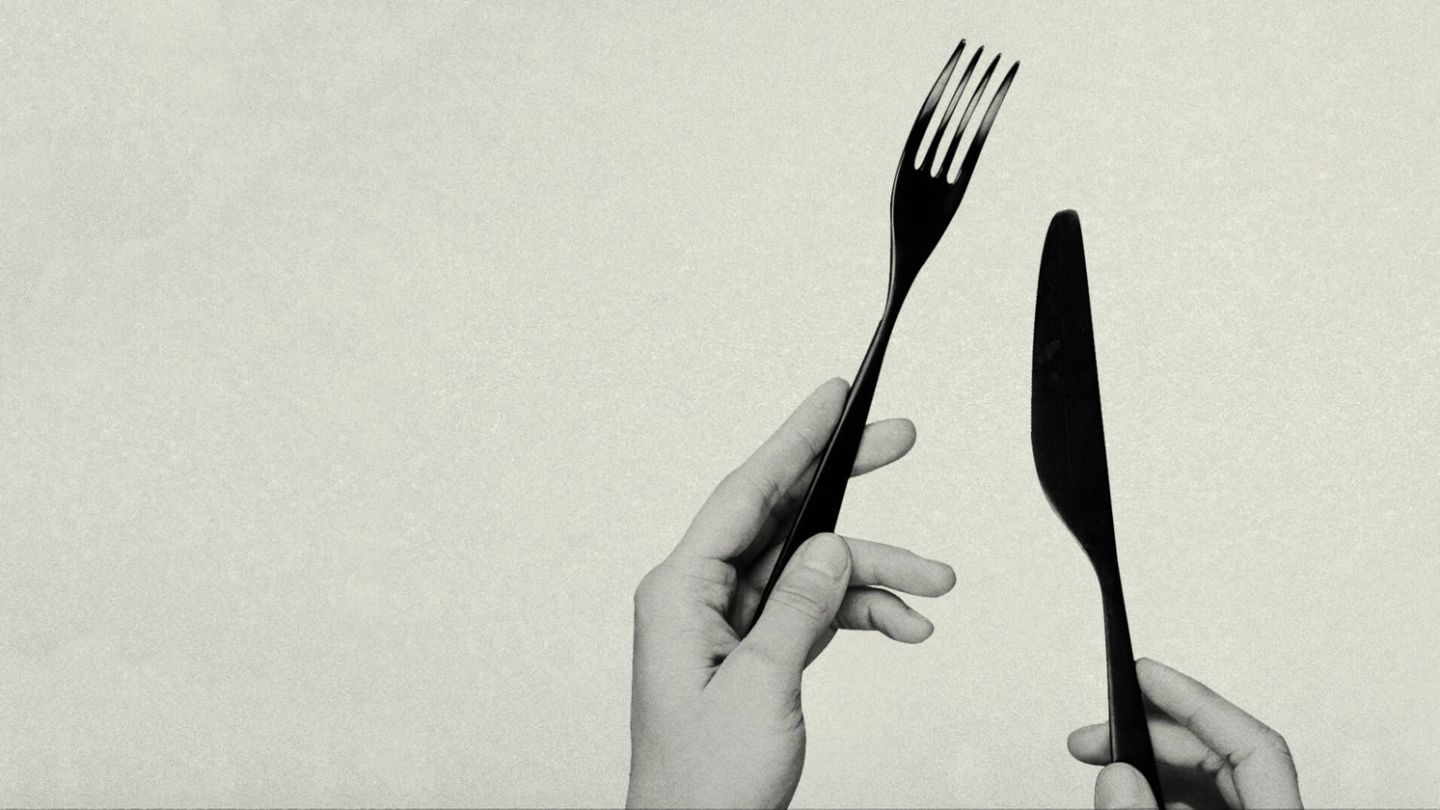

These are the new rules of dinner party etiquette
From incessant flirting to inconsiderate texting, these are the modern equivalents of elbows-on-the-table...
Words: Jonathan Wells
Dinner parties have come a long way. A century ago, they were civilised affairs — sophisticated, softly-lit soirées for which guests were expected to pop on their tails and wittily quip their way through all seven courses. Even as recently as the 1970s, in fact, a dinner party was seen as the hedonistic height of social engagement, with culinary advancements (Microwaves! Prawn Cocktails! Cheese & Pineapple Hedgehogs!) offering up new and exciting menu options.
Today, however, dinner parties are a little drabber. They’re less refined; that alluring shine has disappeared — along with most of the correct cutlery — and they seem to brim with cheap wine, cheaper chat and a brazen disrespect for dress codes.
With this in mind, we turned to William Hanson, the UK’s leading etiquette coach and expert, to help put the pep and panache back into the modern dinner party. So listen closely, fix your ties, and read on…
Don’t touch your tech at the table...
“If someone has invited you for dinner, they want to spend time with you and not your phone,” Hanson advises. “Switch both your phone and smart watch to ‘do not disturb’ so you are not tempted to check them when you feel them buzz in your pocket or on your wrist.
“If you need to just check the world hasn’t ended,” he adds, “then the place to do it is when you excuse yourself from the table to purportedly use the lavatory. That said, there is always a moment at a dinner when you feel that showing a photograph or video on your phone will help illustrate an anecdote you’ve told.
“This is fine to do so, but make sure you do so at the end of the meal after all courses have finished. Also, one way to ensure that your hosts mentally curse you is to ask for the WiFi password within the first moments of the party…”
Undisclosed dietary requirements can ruin an evening
“Everyone has some sort of allergy these days,” says Hanson. “It’s amazing that so many continue to even attempt to host. But remember, a dietary requirement is not a food preference. I’m not wild about a lot of fish but if I went to a friend’s house and they served it to me I could happily cope without saying anything.
“Dietary requirements are foods that you cannot eat due to medical or religious beliefs,” he continues. “As a guest, it is your responsibility to tell your host upon accepting the invitation. If you fail to say anything — due to forgetfulness or your assumption that they have remembered all your culinary quirks — and you are presented with beef Wellington despite being a committed vegan, then tough.
“Eat the vegetables and don’t make a scene,” he adds. “Because it’s your fault! For hosts today, I’d advise them to keep a list of dietary requirements of friends and also to ask guests — even repeat guests — if they eat everything when extending the invitation.”
Flirting is not entertaining for others...
“For singletons, a dinner can be a good way to meet like-minded people who may also be looking for romance,” says Hanson, before adding, “but it is not a date — and your flirting should not distract any other guests or the host from the party itself.
“Make a good impression, by all means, but arrange to meet for a proper date a few days after the dinner. The smart thing to do is to ask your host for the contact info of the other guest. Finally, when it comes to flirting, remember to keep it appropriate.
“Try to avoid being too tactile, and if you do use the sense of touch to build rapport then make sure you only briefly touch arms, elbows and shoulders. But, if in doubt as to what to do, just use your words to connect with them.”
Accept that conversation is a two-way street...
“Although many hope to be in that elite league of guests who always come with an armoury of anecdotes and witty tales — think Wilde, Coward and Fry — it is equally as important to be a good listener.
“If everyone was as bombastic and attention-stealing as the aforementioned, dinners would become very tedious. A gentleman will always listen and ask about the other guests before embarking on a story involving himself. Good manners are self-less, not selfish.”
If you’ve accepted an invitation, extend one...
“In this something-for-nothing age,” says Hanson, “a gentleman should be aware that you do not accept an invitation to dinner — either in a restaurant or in a private house — unless you can pay back in kind. The old rule was that you had six months or so to host in return, but in today’s quicker-paced world, it is probably best to keep it to four or five months — if you want the friendship to survive, of course.”
“Remember, it’s like for like. So, if you are invited to a dinner, then you are expected to invite your hosts back to a dinner. You can’t just throw one big cocktail party and think this will pay off your social debt in one evening — as fun as that may be…”
Want more dining advice? Here’s why it pays to pick up the bill on the first date…
Become a Gentleman’s Journal member. Find out more here.


